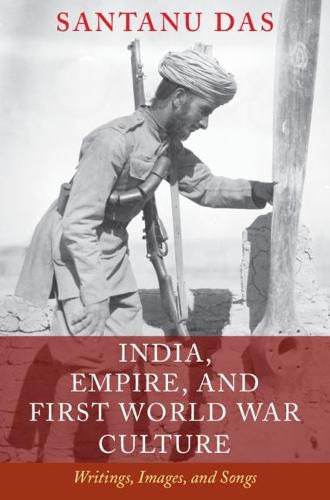Readings Newsletter
Become a Readings Member to make your shopping experience even easier.
Sign in or sign up for free!
You’re not far away from qualifying for FREE standard shipping within Australia
You’ve qualified for FREE standard shipping within Australia
The cart is loading…






Based on ten years of research, Santanu Das’s India, Empire, and First World War Culture: Writings, Images, and Songs recovers the sensuous experience of combatants, non-combatants and civilians from undivided India in the 1914-1918 conflict and their socio-cultural, visual, and literary worlds. Around 1.5 million Indians were recruited, of whom over a million served abroad. Das draws on a variety of fresh, unusual sources - objects, images, rumours, streetpamphlets, letters, diaries, sound-recordings, folksongs, testimonies, poetry, essays, and fiction - to produce the first cultural and literary history, moving from recruitment tactics in villages through sepoy traces and feelings in battlefields, hospitals, and POW camps to post-war reflections on Europe and empire. Combining archival excavation in different countries across several continents with investigative readings of Gandhi, Kipling, Iqbal, Naidu, Nazrul, Tagore, and Anand, this imaginative study opens up the worlds of sepoys and labourers, men and women, nationalists, artists, and intellectuals, trying to make sense of home and the world in times of war.
$9.00 standard shipping within Australia
FREE standard shipping within Australia for orders over $100.00
Express & International shipping calculated at checkout
Based on ten years of research, Santanu Das’s India, Empire, and First World War Culture: Writings, Images, and Songs recovers the sensuous experience of combatants, non-combatants and civilians from undivided India in the 1914-1918 conflict and their socio-cultural, visual, and literary worlds. Around 1.5 million Indians were recruited, of whom over a million served abroad. Das draws on a variety of fresh, unusual sources - objects, images, rumours, streetpamphlets, letters, diaries, sound-recordings, folksongs, testimonies, poetry, essays, and fiction - to produce the first cultural and literary history, moving from recruitment tactics in villages through sepoy traces and feelings in battlefields, hospitals, and POW camps to post-war reflections on Europe and empire. Combining archival excavation in different countries across several continents with investigative readings of Gandhi, Kipling, Iqbal, Naidu, Nazrul, Tagore, and Anand, this imaginative study opens up the worlds of sepoys and labourers, men and women, nationalists, artists, and intellectuals, trying to make sense of home and the world in times of war.